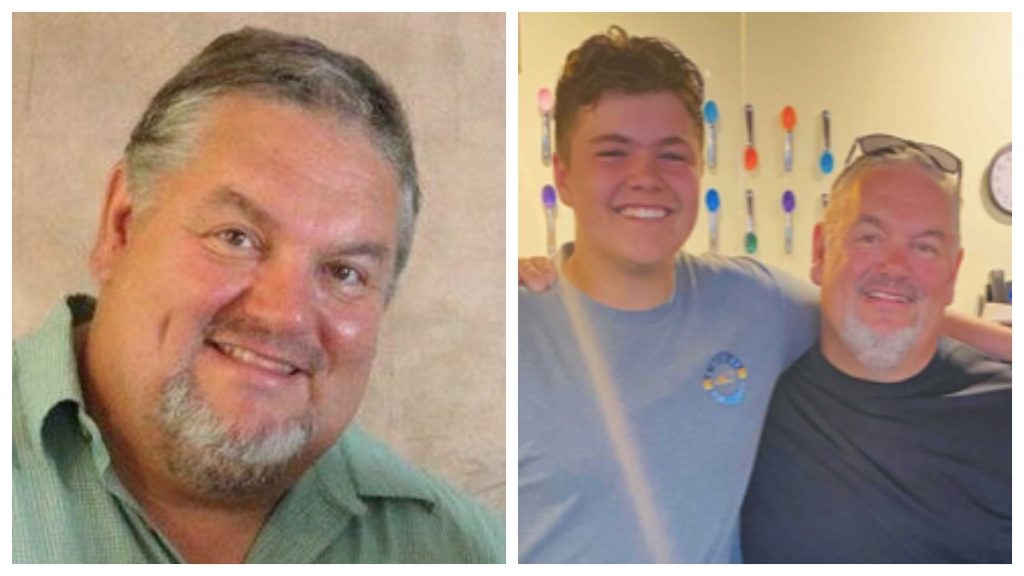When it comes to facilitators and learners, some have questioned whether it is possible to develop as strong of a connection online as can be developed in-person. Well, iLEAD Online Facilitator Thomas Dyer demonstrates that one can.
This past summer, Dyer (who lives in Ohio) finally met learner Isaiah Carlson (who lives in California) in person for the first time after developing a strong facilitator-learner connection online. Dyer said that although they enjoyed working with one another online, it was wonderful to finally meet in person.
“I learned so much about Isaiah’s life experience and world view,” said Dyer. “Our families now have a life-long bond, and we plan on visiting every time we are near one another.”
Dyer is in his second year of teaching social studies for iLEAD Online. After over 15 years of facilitating at his local high school, as well as some Ohio-based online schools, Dyer said he decided to join the iLEAD Online Family.
Dyer said he initially began teaching in the virtual classroom in order to create some more flexibility and time with his family. He has acclimated well to both online facilitating and also working for iLEAD.
“I love so many things about iLEAD – the project-based learning, the culture and the growth mindset,” said Dyer. “iLEAD matched my educational philosophy with their more personalized approach. I knew they believed that one size does not fit all.”
Making strong connections with his learners is a priority for Dyer. He said the important part is letting learners know you care. Dyer emphasized that the online environment does change the way we often connect. He said that it takes a more concerted effort – often through consistent work and feedback.
“You have to figure out ways to convey that you care,” said Dyer. “I invite them to office hours, am very intentional about my comments and reach out more often.”
Dyer refers to these efforts as ‘Online Rapport.’ He said he keeps detailed notes on each learner and their work. Additionally, he typically starts any communication by checking in on them personally before diving into the academics.
“I’m aware of what’s going on with their lives,” said Dyer. “I look at my notes prior and then reach out to them to check how things are going personally.”
Dyer said Isaiah is a good example of how he connects with learners. He said he often relates to learners through music, sports and common interests.
“Isaiah loves classic rock. So, we talk about music,” said Dyer. “I develop personal and authentic connections about common ground.”
Dyer emphasizes that this focus on connecting has to be authentic.
“I really do care. They can see if it’s not real or sincere,” said Dyer. “You have to be genuinely interested in their lives. It takes extra time.”
For educators who want to excel in the area of strong connections, as well as leveraging those for outstanding learning, Dyer said he reminds himself to never lose touch with his inner kid.
“With my teachers who cared, I didn’t want to disappoint them,” said Dyer. “I wasn’t the best learner, but I performed better for the facilitators that I didn’t want to disappoint.”
It is also about embracing learners for who they are and what their unique strengths, talents and interests are. For Dyer, it is about mutual respect. He cites the connection to Isaiah as the ideal example. He shares that Isaiah has conservate political views, while Dyer describes himself as a liberal. He said that it’s about listening to one another and maybe getting the other to think.
“We didn’t forge a friendship because we agree, but rather because we listen to each other, learn from each other and respect each other,” said Dyer. “We tend to demonize the other side instead of working to model civil discourse.”
Carlson concurs with Dyer’s assessment. He said that meeting Dyer in person was a highlight of his school career.
“The conversation translated well from email to face to face and It was great to get a bit more of a human component,” said Carlson. “He has always made a point of interacting with me beyond the school side of things by asking who I was and what my interests are.”
In addition to effective collaboration with learners, Dyer feels that the key to successful online facilitation is the ability to collaborate with colleagues.
“Professional collaboration is even more important in online learning. Everyone knows the learner is more of a team approach,” said Dyer. “I get to know all the people in the learners’ lives. This benefits the learner and facilitator.”
Ultimately all of this leads to better and deeper learning, according to Dyer. He said that his primary goal is to connect social science to the daily lives of his learners and see the self-discovery that happens through project-based learning and real world applications of their knowledge.
“It has to connect to today for learners and also where it’s going tomorrow,” said Dyer.
Going forward, Dyer plans to continue to advance his skills in both project-based learning and making stronger connections with all of his learners.
“I love what I do,” said Dyer. “It’s a pleasure and a privilege.”

